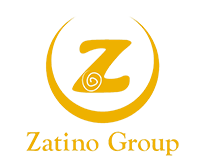Introduction
Ireland is known for its robust economy, favourable business environment, and strong ties to international trade. Over the past few decades, the country has undergone significant economic transformation, transitioning from an agriculture-based economy to a modern, diverse economy driven by technology, pharmaceuticals, and services.

GDP and Growth
Ireland has experienced remarkable economic growth in recent years. The Gross Domestic Product (GDP) has consistently outperformed the European Union (EU) average. The country’s GDP growth is often attributed to its attractive business policies, skilled workforce, and a strong focus on innovation.

Key Industries:
1) Technology and Innovation
Dublin, Ireland’s capital, is home to the “Silicon Docks,” a thriving tech district where many multinational technology companies have established their European headquarters or significant operations. This area has become a focal point for innovation, collaboration, and cutting-edge technology development. Several notable multinational tech companies currently based in Ireland are: Apple, Google, Facebook, Microsoft, Intel, LinkedIn, Twitter (X) and Salesforce.

2) Pharmaceuticals and Biotechnology
Ireland stands as a significant force in the pharmaceutical and biotechnology sectors, hosting a range of top-tier companies with global impact. Renowned pharmaceutical giants, including Pfizer, Johnson & Johnson, and Gilead Sciences, have established manufacturing facilities within the country. These companies contribute to Ireland’s pivotal role in the production and export of pharmaceutical products worldwide, highlighting the nation’s prominence in these critical industries.

3) Financial Services
Ireland’s financial landscape is a cornerstone of its economy, with a multitude of prestigious banks and institutions operating within its borders. Prominent names such as Bank of Ireland, Allied Irish Banks (AIB), and leading international players like Citibank and J.P. Morgan play pivotal roles in the country’s financial sector. Dublin, the financial heart of Ireland, is home to a dynamic array of international and domestic banks, insurance companies, and investment firms, including globally recognised institutions such as HSBC and Deutsche Bank. These institutions collectively contribute to Ireland’s reputation as a reputable and well-connected global financial hub.

4) Agriculture and Food Production
Ireland’s agricultural industry is a significant pillar of its economy, characterised by expansive grasslands and pastures that cover three-quarters of the nation’s land. Large-scale farms thrive in this environment, benefiting from ample water resources and lush grass that contribute to the rearing of robust livestock, including cattle, pigs, and sheep. Livestock products constitute a substantial portion of the country’s exports, with a focus on beef and dairy products. The export of live cattle ranks prominently, particularly to the United Kingdom.
Ireland’s reputation extends to its esteemed purebred horses, which are renowned globally for their exceptional quality and lineage. The country has a rich equestrian heritage, and its purebred horses are highly sought after for racing, show jumping, and various equestrian pursuits. Irish-bred horses have made their mark in international competitions, adding to Ireland’s reputation as a hub of equine excellence.

Over the decades, Ireland’s agricultural landscape has diversified with the growth of the industrial sector. This diversification encompasses various branches, including textiles, machinery, chemicals, and food processing, especially in meat products, beverages like beer, and tobacco. The country’s involvement in the European Economic Community since 1973 has expanded its trade beyond the United Kingdom, leading to the importation of various goods such as chemicals, fertilizers, machinery, and textiles, among others.
